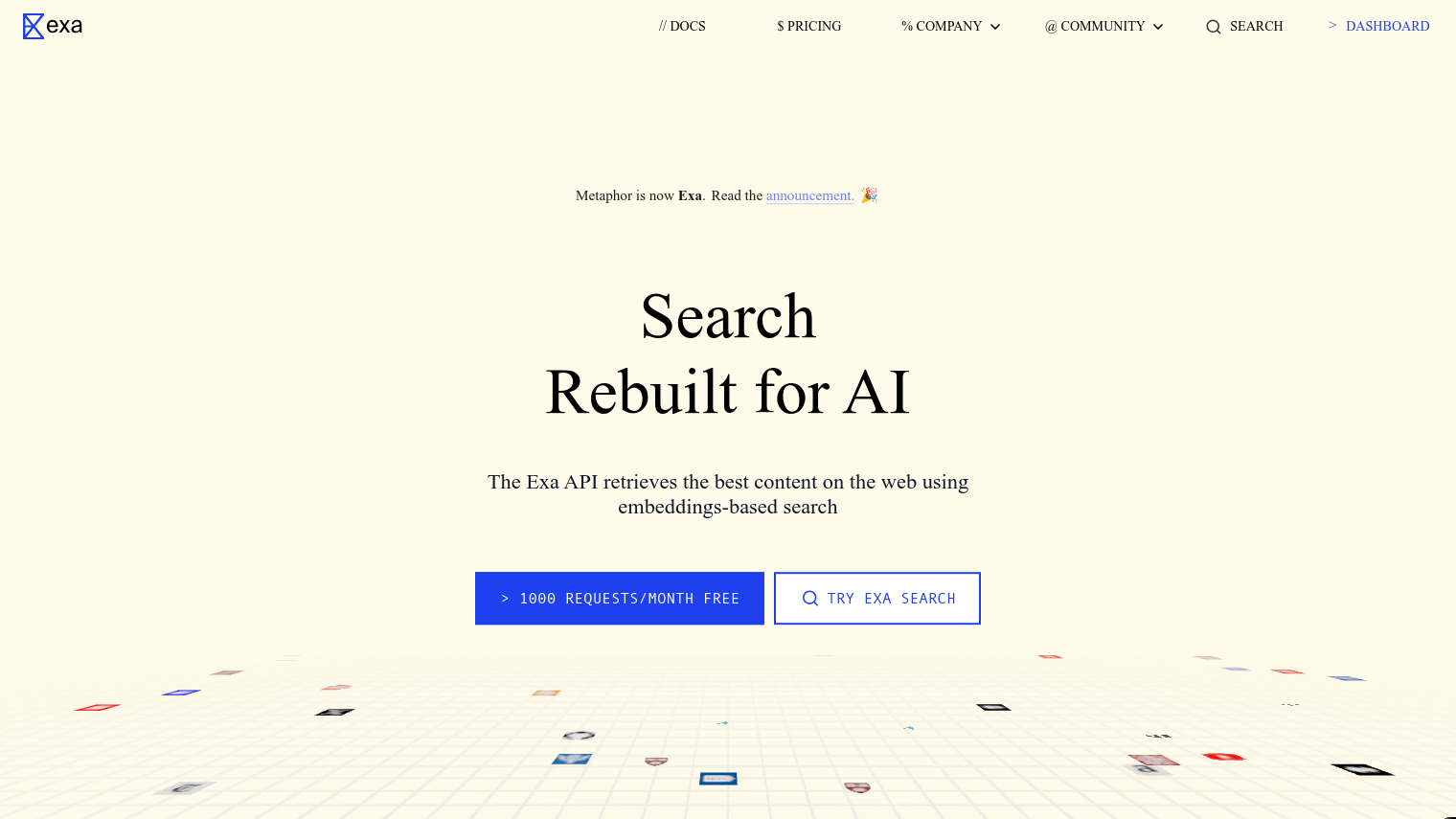Exa is a search engine that uses embeddings to understand the meaning of search queries, essentially turning the web into a more structured database. It uses transformer-based models to generate results that are contextually relevant, not just a collection of documents that match a few keywords. That means Exa can handle more sophisticated queries and deliver better results.
Exa is particularly well-suited for use with Large Language Models (LLMs), helping them avoid hallucinations by providing a known and reliable source of web content. The system accepts natural language search queries, returns page content immediately and can automatically process thousands of results.
Exa has a variety of pricing tiers:
- Hacker: $0/month for up to 10 results per search and 1000 requests per month.
- Wanderer: $10 for 1,000 searches (1-25 results) and $1.50 for 1,000 pieces of content.
- Wanderer+: $10 for 1,000 searches (1-25 results) and $30 for 1,000 searches (26-100 results).
- Enterprise: Custom plans with up to 1M results per search, volume discounts, and custom datasets.
Exa plans to update its index every two minutes, focusing on high-quality web pages. The system also can perform similarity searches, in which it crawls and parses content from a list of URLs to find related web pages.
For developers and LLM users, Exa is a way to get to relevant web content without having to memorize it all. By delivering a more accurate and efficient search experience, Exa hopes to make the web a more organized and useful place to find information.
Published on June 8, 2024
Related Questions
Tool Suggestions
Analyzing Exa...







